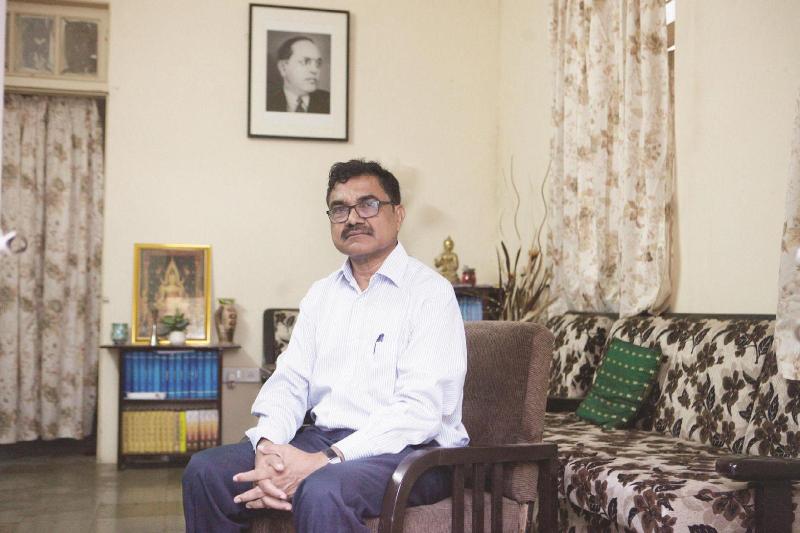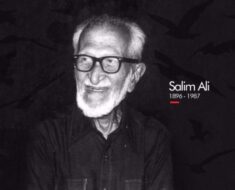Anand Teltumbde, a prominent Indian civil rights activist, has been at the center of media attention due to his alleged involvement in the 2018 Bhima Koregaon violence and a purported Maoist plot to assassinate Prime Minister Narendra Modi. He’s also renowned for his insightful writings on India’s caste system and the philosophies of B. R. Ambedkar.
Wiki/Biography
Anand Teltumbde was born in 1952 (68 years old as of 2020) in Rajur, a small village nestled in Maharashtra’s Yavatmal district. A high-achieving student from his school days, he pursued a B.Tech in Mechanical Engineering at the Visvesvaraya National Institute of Technology, Nagpur, graduating in 1973. Financial constraints, however, forced him to discontinue his master’s program at a leading Indian engineering institution.
He later earned an MBA from the Indian Institute of Management Ahmedabad in 1982 and a PhD in Cybernetic Modelling from the University of Mumbai in 1993. Remarkably, he completed his doctoral studies while working as an executive at Bharat Petroleum in Mumbai. His accomplishments extend to an honorary doctorate (D.Litt) from Karnataka State Open University. His career path showcases impressive versatility, spanning roles as a management professional, professor at IIT Kharagpur, and professor at the Goa Institute of Management. Prior to his academic career, he held executive positions at Bharat Petroleum and served as Managing Director of Petronet India Limited.
Family & Caste
Anand Teltumbde hails from a Dalit family of farm laborers in Maharashtra.
Parents & Siblings
His parents worked as farm laborers. His mother’s name was Anusaya. He is the eldest of eight siblings. His brother, Milind Teltumbde, has reportedly been involved in Naxalite activities.
Relationships, Wife & Children
Anand Teltumbde is married to Rama Teltumbde, a great-granddaughter of B. R. Ambedkar. The couple has two daughters, Prachi and Rashmi.
Civil Rights Activist
Anand Teltumbde is a well-known civil rights activist in India, a passionate advocate for Dalit rights. His activism began in 1967, when, as a 14-year-old ninth-grader in Wani, Maharashtra, he defied the school’s uniform policy by refusing to wear the black caps worn by some RSS members, opting instead for the prescribed white caps. This early act of defiance foreshadowed a lifelong commitment to social justice.
Bhima Koregaon Case
Anand Teltumbde’s name became entangled in the Bhima Koregaon Case, stemming from events on January 1, 2018, in Bhima Koregaon, Pune, Maharashtra. Violence erupted after a large gathering of Dalits commemorated the 200th anniversary of the 1818 Battle of Koregaon. One person died, and many were injured. Authorities linked the violence to participants of the Elgaar Parishad, leading to the arrest of several intellectuals and activists accused of Maoist links and instigating the violence.
Assassination Plot of Narendra Modi
The investigation into the Bhima Koregaon violence broadened to include an alleged plot to assassinate Narendra Modi. Anand Teltumbde was implicated, with the police citing four letters and a ledger entry allegedly recovered from a co-accused’s computer as evidence. His outspoken criticism of Narendra Modi, including his 2017 description of Modi as a “narcissist par excellence” potentially more dangerous than Hitler, was also cited by the police as evidence.
Raids and Arrest
On August 29, 2018, law enforcement officials raided Teltumbde’s Goa home, arresting him under the Unlawful Activities (Prevention) Act. He vehemently denied the accusations. His legal challenges, including a Supreme Court appeal to quash the FIR, initially proved unsuccessful. He was arrested on February 3, 2019, but released the same day due to a Supreme Court order.
The Outcry of Intellectuals Over His Arrest
The arrest prompted widespread condemnation from India and abroad. Arundhati Roy, among others, spoke out against the silencing of a “powerful” voice with “an unimpeachable intellectual track record.” Over 150 organizations and intellectuals, including prominent figures like Cornel West and Noam Chomsky, signed a letter to UN Secretary-General António Guterres, calling the charges “fabricated” and urging UN intervention.
Surrender
Following the Supreme Court’s dismissal of his anticipatory bail plea on March 16, 2020, and a three-week deadline to surrender, Anand Teltumbde surrendered to the National Investigation Agency (NIA) in Mumbai on April 14, 2020. His arrest drew condemnation from numerous intellectuals and historians, including Romila Thapar.
Facts/Trivia
Here are some interesting facts about Anand Teltumbde’s life:
- He painted cinema hoardings for extra money during his school days.
- In 1994, he authored his first book in Marathi, “Jagatikikaran Ani Dalit-Shoshit,” followed by 20 more books, 11 monographs, and over 500 articles.
- Despite advocating for Dalit rights, he claims to have not personally experienced significant discrimination.
- He first encountered Ambedkar’s writings during his pre-university years, yet he cites Marx as a more significant early influence.
Educational Background and Career
| Degree | Institution | Year |
|---|---|---|
| B.Tech (Mechanical Engineering) | Visvesvaraya National Institute of Technology, Nagpur | 1973 |
| MBA | Indian Institute of Management Ahmedabad | 1982 |
| PhD (Cybernetic Modelling) | University of Mumbai | 1993 |
| D.Litt (Honorary) | Karnataka State Open University | – |







